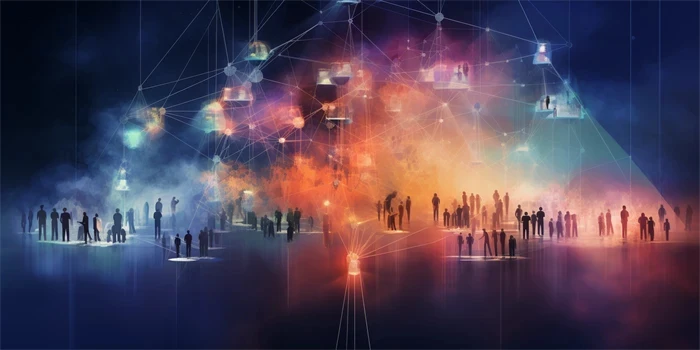The rapid advancements in artificial intelligence (AI) have led to the emergence of chatbots as social companions. These AI-powered virtual assistants simulate human conversation, providing companionship, entertainment, and even support for individuals. As technology continues to transform our lives, AI chatbots have the potential to redefine relationships in the digital age. In this article, we will discuss the various aspects of AI chatbots as social companions, exploring their benefits, limitations, and implications for human connection.

1. Emotional Support and Mental Well-being
The ability of chatbots to empathize and provide emotional support is one of their most significant advantages. These AI companions can engage in conversations that help reduce stress, anxiety, and loneliness. They can offer a listening ear and provide guidance, making them beneficial for individuals who may not have access to traditional support systems. However, it is crucial to acknowledge that chatbots cannot replace human interaction entirely and that they may lack the depth of understanding a human companion can provide.
2. 24/7 Availability
Unlike humans, chatbots are available round the clock, providing uninterrupted companionship and assistance. These virtual companions can fulfill the need for constant interaction, making them particularly useful for individuals who live alone or experience social isolation. Having someone to talk to at any time can alleviate feelings of loneliness and enhance overall well-being.
3. Personalization and Tailored Experiences
AI chatbots can be customized to suit individual preferences and needs. Through machine learning algorithms, they can analyze user data and adapt their responses accordingly. This personalization enables chatbots to better understand and connect with users, providing a tailored experience for each individual. With time, the chatbot becomes more attuned to the user’s personality, likes, and dislikes, creating a unique bond.
4. Entertainment and Engagement
Chatbots are not limited to providing companionship; they can also offer entertainment and engagement. They can converse on a wide range of topics, engage in storytelling, make jokes, or even play interactive games. Some chatbots are designed to replicate the personality of famous individuals or fictional characters, providing users with a unique and entertaining experience.
5. Language Learning and Skill Enhancement
AI chatbots can serve as language tutors and skill enhancers. They can provide language lessons, vocabulary quizzes, and practice conversations, making language learning interactive and engaging. Additionally, chatbots can assist individuals in developing new skills or knowledge in various domains, such as cooking, fitness, or even programming. The interactive nature of chatbots makes learning more accessible and enjoyable.
6. Limitations and Ethical Considerations
While AI chatbots offer several benefits, it is crucial to recognize their limitations and ethical considerations. Chatbots lack human emotions, empathy, and intuition, limiting their ability to fully understand and respond appropriately to complex emotions or situations. Users may also become overly reliant on chatbots for emotional support, potentially hindering their ability to seek help from humans when necessary. Additionally, there are concerns regarding data privacy and security, as chatbot interactions may involve personal information.
7. The Future of AI Chatbots
The development and integration of AI chatbots continue to advance rapidly. In the future, we can expect more sophisticated chatbots with enhanced conversational abilities, emotional intelligence, and context understanding. These advancements will enable chatbots to provide even more realistic and personalized companionship, further blurring the line between human and AI interaction.
Frequently Asked Questions
1. Can chatbots completely replace human companionship?
No, chatbots cannot entirely replace human companionship. While they offer valuable support and engagement, human connection and understanding remain essential for emotional well-being.
2. Are AI chatbots only for lonely individuals?
No, AI chatbots are not exclusively for lonely individuals. They can benefit anyone seeking companionship, entertainment, or assistance, regardless of their social circumstances.
3. How do AI chatbots learn and adapt?
AI chatbots learn and adapt through machine learning algorithms. They analyze user interactions and data to continuously improve their responses and provide personalized experiences.
References
1. Johnson, D., & Selepak, A. (2020). AI and Chatbots: Changing the Nature of Long-Term Relationships. Journal of Broadcasting & Electronic Media, 64(2), 243-261.


